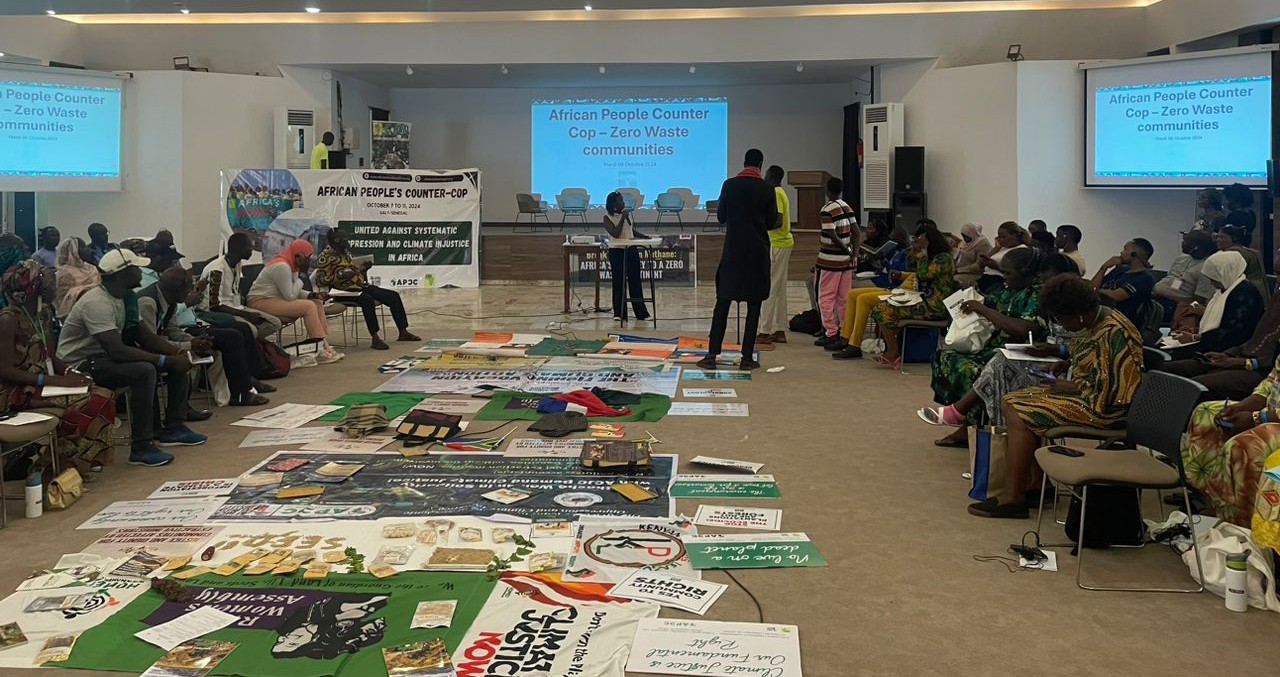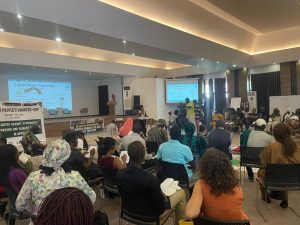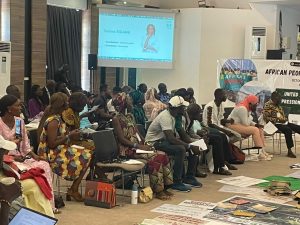African People’s Counter COP: Environmental Activists Demand Policies, Action On Methane Reduction

By Edu Abade
Environmental activists and climate crusaders have urged African governments to enact laws, policies and deliberate actions aimed at protecting the environment from methane emission, as the world moves towards zero waste and climate change mitigation.
 They stated this at a side event organized by the Global Alliance for Incinerator Alternative (GAIA) Africa in collaboration with Community Development Advocacy Foundation (CODAF), Center for Earth Works (CFEW), Zero Waste Senegal and Andasonia Green, at the ongoing African People’s Counter COP (APCC) by the Africa Climate Justice Collective (ACJC) in Sally, Senegal.
They stated this at a side event organized by the Global Alliance for Incinerator Alternative (GAIA) Africa in collaboration with Community Development Advocacy Foundation (CODAF), Center for Earth Works (CFEW), Zero Waste Senegal and Andasonia Green, at the ongoing African People’s Counter COP (APCC) by the Africa Climate Justice Collective (ACJC) in Sally, Senegal.
Presenting a position document titled: Zero Waste As A Solution, Coordinator of GAIA Africa, Niven Reddy, stated that waste is the third largest source of methane, primarily from land-filling organic waste, which is over 80 times as potent as CO2.
 He also revealed that the fastest and most economical environmental way to reduce emissions from organic waste is to simply stop putting the waste in landfills by scaling up proven organic waste management strategies.
He also revealed that the fastest and most economical environmental way to reduce emissions from organic waste is to simply stop putting the waste in landfills by scaling up proven organic waste management strategies.
“Most of plastics’ worst impacts, such as greenhouse gas and toxic air emissions, occur primarily in the production phase. If the lifecycle of plastics were a country, it would be the fifth largest greenhouse gas emission agent on Earth! Other problems, such as the transfer of toxic compounds into food, happen in the use-phase, while non-recyclability of most plastics is an end-of-life issue.”
Sharing reports on a recent survey, Coordinator of Adansonia Green, Farima Tidjani, who revealed that 95 percent of wastes in Senegal comprise plastic, which has become a problem to the environment, maintained that the only way to mitigate the environmental gap is by implementing organic waste management systems, promoting composting, recycling and producing materials that can be reused.
“In our efforts to reduce methane emissions, we work in the field of plastic waste management in our communities. We also evaluate waste consumption and we create employment through organic waste.
“Today we are in reuse because through this we promote recycling and reuse of waste, we ask our communities to kindly move to reuse through household waste management. Through this method, waste pickers are made useful, we have less water pollution, and organic waste can be transformed into chemical fertilizers.”
Also speaking, representative of GAIA Africa in Senegal, Desmond Alugnoa, revealed that 200,000 tons of plastic wastes are produced yearly in the country, while 250 tons of plastics are produced daily in Dakar, due to lack of infrastructure and policies for the management and recovery of plastic wastes.
He said the Senegalese Government had enacted laws on plastics, which only succeeded in eliminating plastic cups from the environment, but did not remove single use plastics.
He lamented that the laws were hindered by the rigidity of certain provisions, failure to take into account a commission responsible for managing offences relating to plastic products, the absence of an explicit provision on the period granted (either six or eight months) for plastics players to comply with the law at the transitional provisions level, absence of popularization throughout the national territory and absence of implementing regulatory texts.
On her part, CODAF Project Manager (Environment), Melody Enyinnaya stated that Nigeria remains one of the African countries battling with policies on waste management, saying there are false solutions around zero waste management laws as they concern methane reduction, which has hindered actions by environmental enthusiasts and activities.
She argued that the first step to achieving a zero waste economy is by pushing policies that insist on waste separation from source and the enactment of real solutions to methane reduction and enforcement of existing waste management laws.
Some of the demands made at the APCC include calling for policies that prioritize the wellbeing of waste pickers, laws on segregation of waste from source, policies that put an end to open dumping and littering and real solutions to methane reduction.
They also demanded that African governments must enact laws that insist on extended producers’ responsibility processes where management of plastic waste will move from consumers to producers, stressing that producers must take full responsibility and accountability for the wastes they produce.











